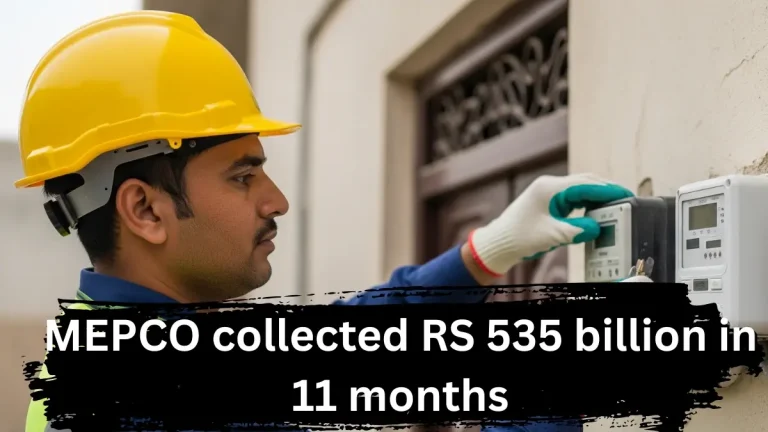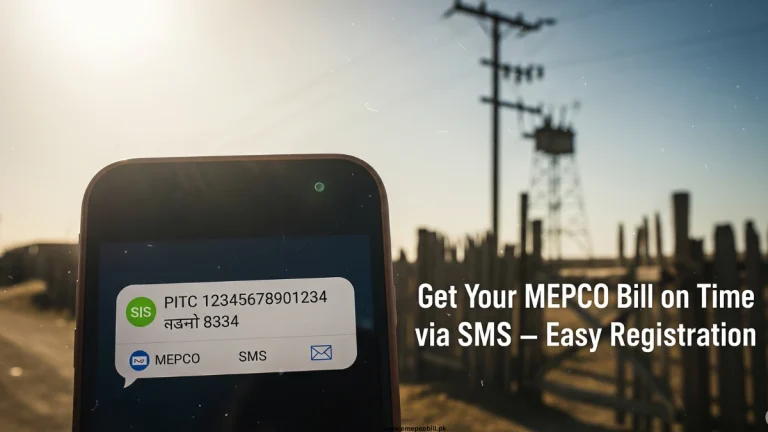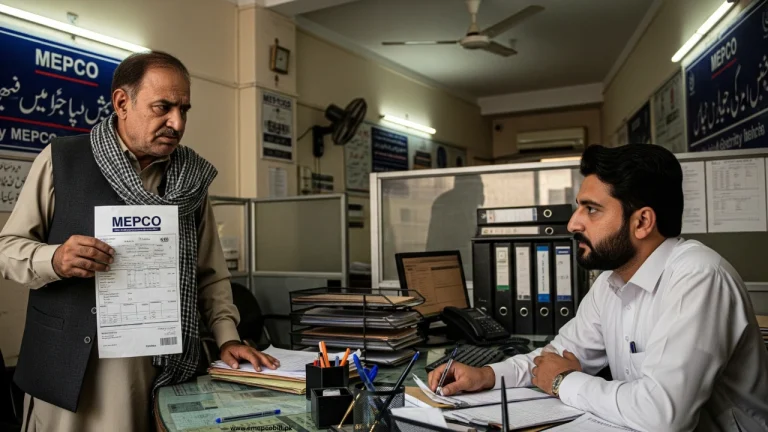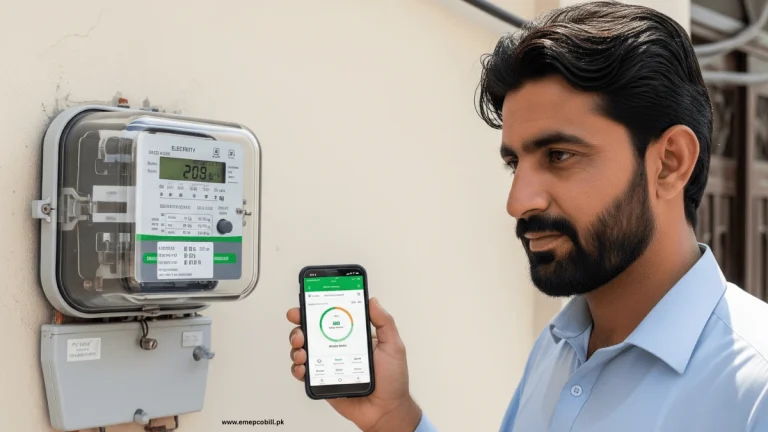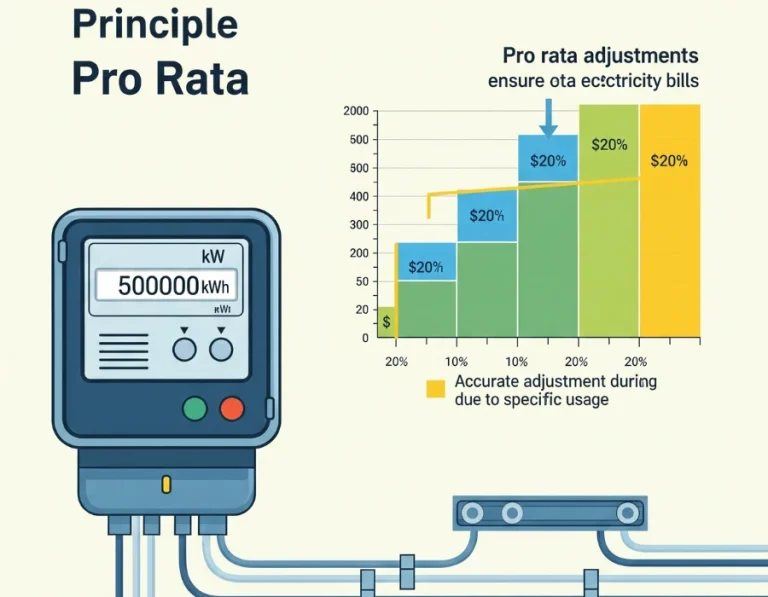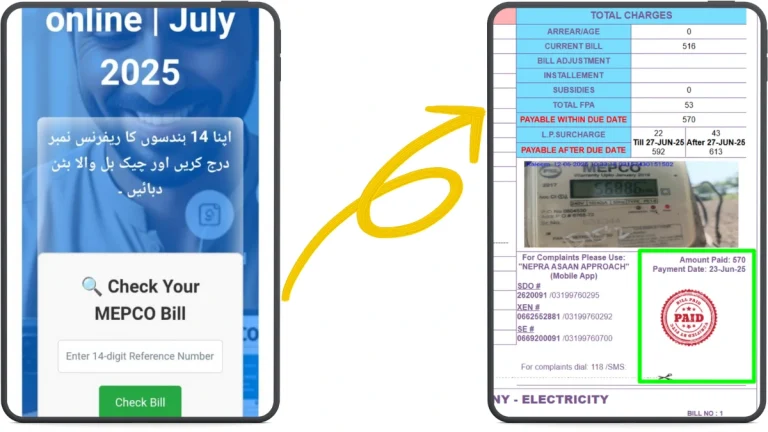What is Detection Bill MEPCO? A Clear Guide by an Expert Electrician in Pakistan
As someone who has spent years in the field, dealing with electric meters, household wiring, and customer complaints across Southern Punjab, I’ve encountered many cases where consumers suddenly receive an extra charge, known as a detection bill, from MEPCO.
It often leads to confusion, frustration, and mistrust. That’s why I’ve written this post to clearly explain what a detection bill in MEPCO means, when it is issued, and what you should do if you receive one.
What is Detection Bill MEPCO?
A detection bill is an additional bill issued by MEPCO (Multan Electric Power Company) when someone is found to be involved in electricity theft, tampering with the meter, or using electricity through illegal means, such as direct hooking (kunda system).
Unlike your regular monthly bill, this detection bill is not based on your current meter reading. Instead, it’s calculated as a penalty based on how much electricity you are suspected to have using illegally over a certain period. The detection bill is issued in addition to your usual monthly bill.
Common Reasons Why MEPCO Issues a Detection Bill?
In my experience on the ground, these are the most common reasons why MEPCO sends a detection bill to a consumer:
- Hole in the Meter: A physical hole is sometimes made to tamper with the internal mechanism.
- Slow or Tempered Meter: If the meter runs unusually slow or has been altered to show less usage.
- Shunt or Loop on Terminal Box: Additional wiring is used to bypass proper meter readings.
- Hooking (Kunda System): Direct connection to MEPCO lines without an official meter.
- Faulty or Deliberately Damaged Meter: Even slight meter manipulation, if found deliberate, can lead to a detection bill.
I’ve seen meters that look fine on the outside but are expertly tampered with from within. That’s why MEPCO relies on technical staff and surveillance teams to detect such issues during field visits or inspections.
What Law Says About Detection Billing?
Detection billing isn’t something MEPCO does randomly. It’s backed by the Electricity Act 1910, especially under:
- Sections 39 & 39-A – For electricity theft or illegal connections.
- Section 26-A – Used to assess the quantity of power stolen.
- Section 48 – To recover the cost of electricity stolen.
When someone is caught, an FIR may be registered, and a detection bill is prepared. If you are the owner or occupant of the premises, you are considered responsible, even if someone else installed the illegal connection.
How the Detection Bill is Calculated
Based on my knowledge and what I’ve seen on-site, MEPCO uses a detailed calculation method:
- The surveillance team tests your meter or reviews evidence of theft.
- They estimate how long the theft or tampering has been going on.
- The detection bill is then calculated for that time frame.
- The amount is added as arrears in your next electricity bill.
Only authorized officers, such as the Chief Executive Officer (CEO) or Load Sanctioning Authority, can approve the detection amount after the technical team verifies the findings.
What Happens After Detection?
Once approved:
- The Revenue Officer generates a detection bill.
- You will get a separate detection bill alongside your regular monthly bill.
- If unpaid, MEPCO can disconnect your electricity as part of recovery procedures.
In rare cases, errors can happen. If the detection bill is wrong, you can:
- File a review request through the proper MEPCO channel.
A Review Committee will examine your case and correct the bill if needed.
Can You Dispute a Detection Bill?
Yes, and as someone who has helped many clients navigate this process, here’s what you can do:
- Visit the MEPCO Sub-Divisional Office where your bill was issued.
- Ask for written proof or testing reports that justify the detection bill.
- File a complaint with the Electric Inspector (though there are limitations under current laws).
- If needed, you may also approach a civil court for legal remedy.
However, be advised: delays in action can lead to disconnection, and unpaid detection bills remain in your billing history.
🧠 My Honest Advice as an Electrician
If you’re using electricity, always ensure that:
- Your meter is visible and accessible to MEPCO staff.
- You never allow any unauthorized connection or alteration.
- Any complaint or issue must be handled through official MEPCO channels.
I’ve seen many honest families get trapped because of a mistake done by tenants, electricians, or neighbors. Prevention is always better than handling a penalty that can run into tens of thousands of rupees.
✅ Final Thoughts: Stay Informed, Stay Safe
Understanding what is detection bill MEPCO, helps to protect you and your family from unnecessary fines or disconnection. MEPCO’s detection billing may sound harsh, but it is part of a legal framework aimed at discouraging electricity theft and ensuring fairness for all users.
As a licensed electrician who’s worked across Bahawalpur, Multan, D.G. Khan, and other MEPCO areas, my advice is simple: Use electricity legally, maintain your meter properly, and keep your bill records clear. That way, you’ll never have to worry about receiving a detection bill in the first place.
Have questions about your meter or received a detection bill? Drop a comment below or contact your nearest MEPCO office.
Stay safe. Use electricity responsibly.

